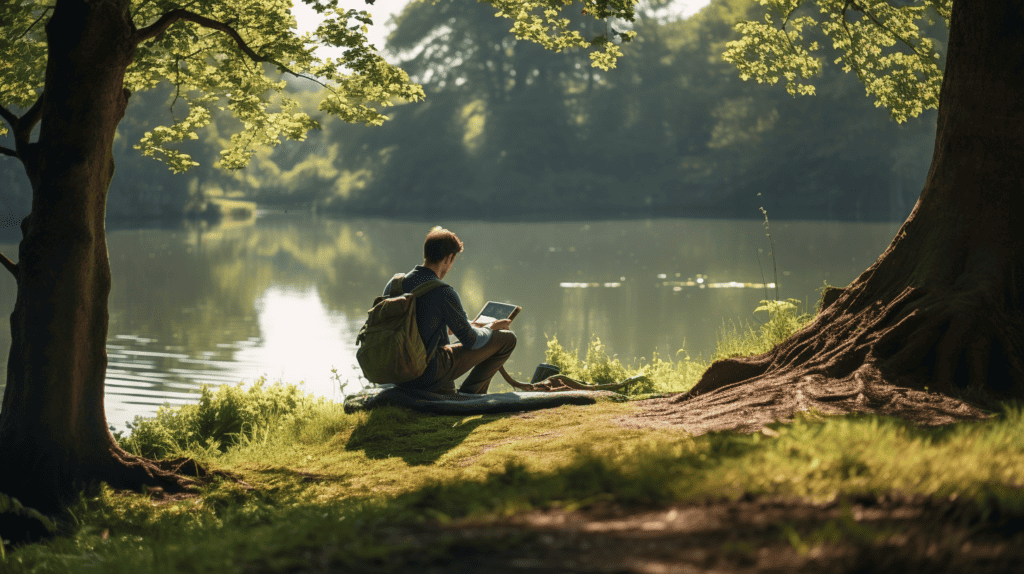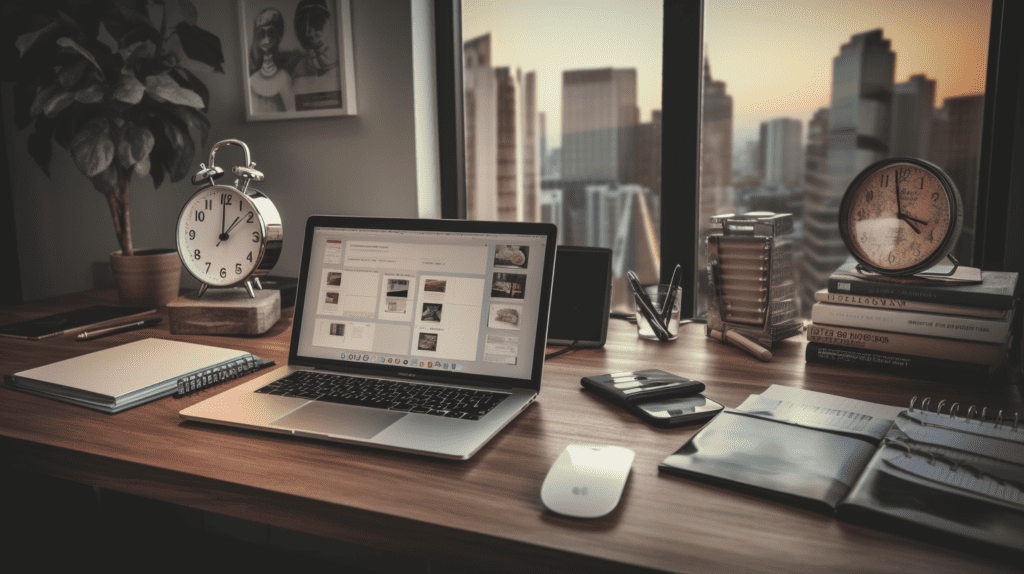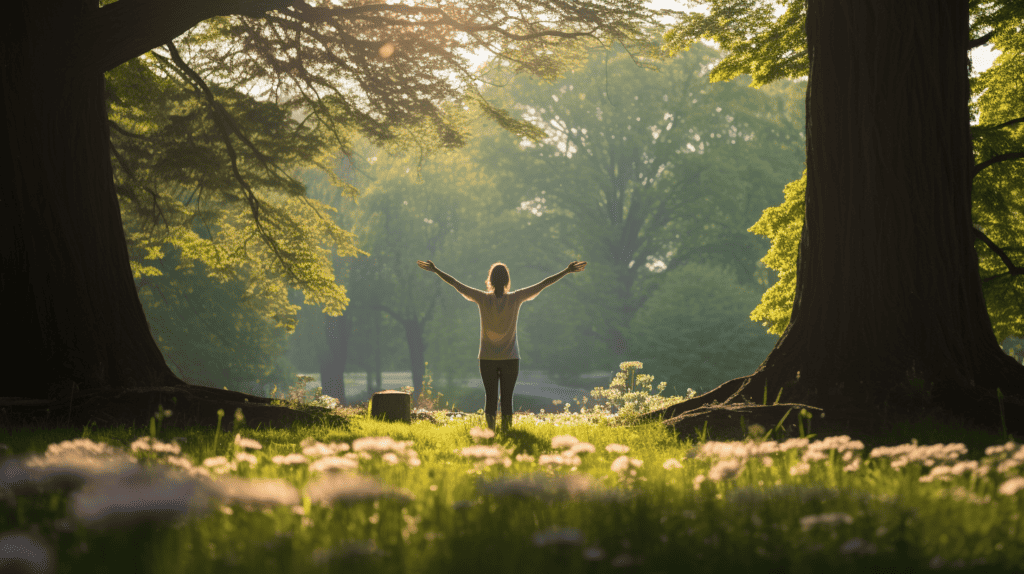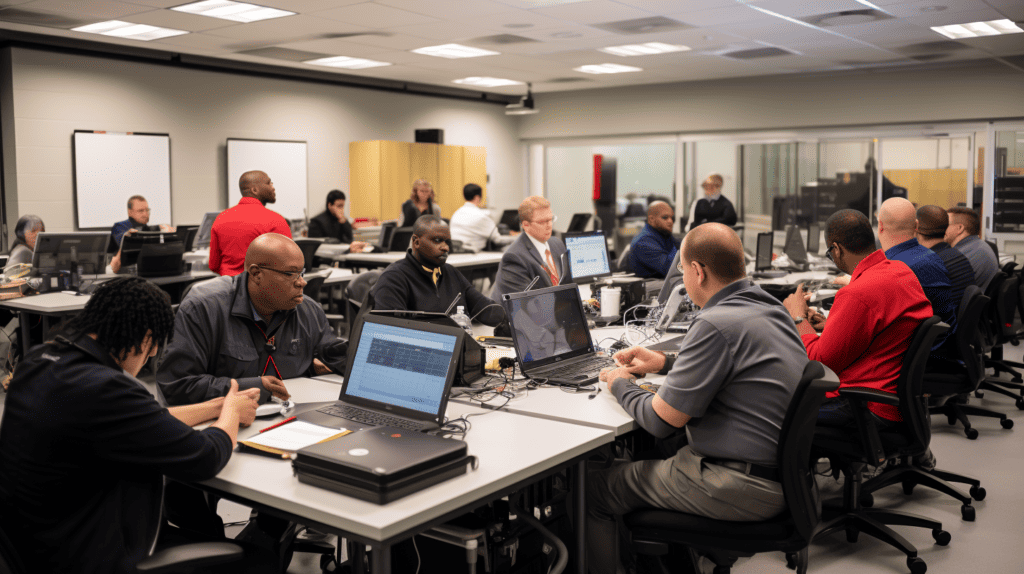Welcome to my article on the importance of finding time to relax and unwind in today’s fast-paced world. In a society that celebrates busy-ness and productivity, it can be challenging to prioritize self-care and stillness. However, taking time to recharge is essential for maintaining physical, mental, and emotional health.
In this article, I will share practical tips and techniques for managing your time effectively and creating a relaxation routine that fits into your busy schedule. We will explore different activities and practices that can help you unwind, from mindfulness and meditation to spending time in nature and nurturing relationships with loved ones.
Key Takeaways:
- Effective time management contributes to a more balanced and fulfilling lifestyle
- Prioritizing relaxation and personal time can lead to a stress-free life
The Importance of Time Management in Relaxation
In order to truly relax and unwind, managing your time effectively is crucial. Without proper time management, it can be difficult to prioritize rest and self-care, leading to a constantly stressed and overwhelmed state.
It’s important to start by setting specific goals and prioritizing tasks based on their level of importance. One effective time management technique is the Eisenhower Matrix, which involves categorizing tasks as urgent, important, both, or neither.
| Urgent | Important | Both | Neither |
|---|---|---|---|
| Dealing with a crisis | Completing a project for work | Scheduling a doctor’s appointment | Browsing social media |
| Meeting a deadline | Spending time with family and friends | Exercising regularly | Watching TV for hours |
By using this model, you can prioritize tasks based on their level of urgency and importance, allowing you to allocate your time accordingly and still have time for relaxation and self-care.
Another key aspect of time management is learning to use time-saving strategies and maximize efficiency. This includes reducing multitasking, delegating tasks to others when possible, and identifying time-wasting activities that can be minimized or eliminated altogether.
The Importance of Time Management in Relaxation
By managing your time effectively, you can create more personal time for relaxation and self-care. Prioritizing rest and incorporating it into your daily routine is essential for achieving a stress-free and fulfilling life.
Creating a Relaxation Routine
Now that we’ve discussed the importance of managing your time effectively, it’s time to create a relaxation routine. Prioritizing relaxation is essential for achieving a stress-free life, and incorporating it into your daily routine can help you maintain balance and improve your overall well-being.
Here are some time management techniques to help you create a relaxation routine:
- Set aside dedicated relaxation time: Just like you would schedule time for work or appointments, make sure to schedule time for relaxation. Pick a time of day that works best for you, and stick to it as much as possible.
- Identify relaxation activities: Jot down a list of activities that help you relax, such as reading, taking a bath, or practicing yoga. Choose activities that work best for you and that you can realistically fit into your schedule.
- Make relaxation a priority: It can be easy to push relaxation aside when we feel busy or stressed, but remember that relaxation is just as important as any other task on your to-do list. Prioritize it, and don’t feel guilty about taking the time you need to unwind.
By setting aside time for relaxation, identifying activities that work best for you, and making it a priority, you can create a relaxation routine that fits into your busy schedule and helps you achieve a more balanced and fulfilling lifestyle.

Choosing the Right Activities for Relaxation
When it comes to relaxation, not all activities are created equal. Some activities may be relaxing for one person but not for another, while some may be too time-consuming to incorporate into a busy schedule. It’s important to choose activities that not only help you unwind but also fit into your lifestyle. Here are some suggestions for choosing the right activities for relaxation:
- Identify your preferences: Start by identifying the activities that you enjoy and find relaxing. This could include reading, listening to music, taking a bath, or practicing yoga. Make a list of these activities and keep it handy.
- Consider time constraints: While some activities like taking a walk or practicing mindfulness meditation can be done in as little as 10-15 minutes, others like soaking in a bath or watching a movie may require more time. Consider how much time you have available and choose activities that fit into your schedule.
- Try new things: Don’t be afraid to try new activities, even if they are outside of your comfort zone. Exploring new activities can help you discover new ways to relax and unwind.
“When it comes to relaxation, not all activities are created equal.”
Keep in mind that everyone’s preferences and schedules are different, so there is no one-size-fits-all approach to choosing the right activities for relaxation. Experiment with different activities and find what works best for you.
Once you have identified the activities that help you relax, consider incorporating them into a routine. This could mean scheduling a regular time for your preferred activity or incorporating it into a daily self-care checklist. Prioritizing relaxation and making time for it in your schedule is key to achieving a balanced and stress-free lifestyle.
Creating a Relaxing Environment
When it comes to relaxation, creating a calming environment is crucial. Setting up a peaceful space can help individuals unwind and let go of stress. Here are some time management techniques to help you create a relaxing environment:
- Declutter: A cluttered space can lead to a cluttered mind. Spend some time each day tidying up your space to create a sense of calm.
- Set boundaries: Establish boundaries with others to protect your relaxation time. Let them know when you need to unplug and recharge.
- Create a calming atmosphere: Incorporate calming scents, sounds, and lighting into your space to create a peaceful atmosphere.
By incorporating these time management techniques into your daily routine, you can create a relaxing environment that promotes relaxation and helps you unwind after a busy day.

Mindfulness and Meditation for Relaxation
One of the most effective ways to achieve relaxation is through mindfulness and meditation. These practices help individuals still their minds, find inner peace, and reduce stress. If you’re new to mindfulness or meditation, don’t worry – it’s easy to get started!
The first step is to create a space where you can practice without distractions. This could be a quiet room in your home or a peaceful outdoor spot. Next, find a comfortable position – you can sit or lie down, as long as you feel relaxed and at ease.
When you’re ready, close your eyes and focus on your breathing. Pay attention to each inhale and exhale, and try to let go of any thoughts or distractions that pop into your mind. If your thoughts start to wander, gently bring your attention back to your breath.
There are many different types of meditation, so feel free to explore and find what works best for you. You could try guided meditations, which are led by a teacher or recorded voice, or simply set a timer and sit in silence for a certain amount of time.
Remember, the goal of mindfulness and meditation is not to completely clear your mind of thoughts – that’s nearly impossible! Instead, the goal is to cultivate a sense of calm and acceptance, no matter what thoughts or emotions may arise.
Time Management Techniques for Mindfulness and Meditation
Even if you’re convinced of the benefits of mindfulness and meditation, it can be tough to find the time to practice regularly. Here are some time management techniques that can help you make space for these relaxing practices:
- Schedule a set time for meditation each day, and treat it as an important appointment that can’t be cancelled.
- Make use of “found time” – for example, you could meditate during your morning commute or during a break at work.
- Start small – even just a few minutes of meditation each day can make a big difference in your stress levels.
- Use apps or other tools to help you stay on track and make meditation a regular habit.
With a little bit of time management and dedication, you can easily incorporate mindfulness and meditation into your daily routine – and reap the benefits of a more relaxed and peaceful life.

Physical Activities for Relaxation
Engaging in physical activities can be a great way to unwind and relieve stress. Exercise releases endorphins in the brain, which are natural painkillers that can also boost mood and reduce anxiety. Here are some physical activities you can try:
- Yoga: This mind-body practice combines physical postures, breathing exercises, and meditation to promote relaxation and flexibility.
- Walking: This low-impact activity can be done anywhere and is a great way to get some fresh air and clear your mind.
- Other forms of exercise: Whether it’s running, swimming, cycling, or dancing, find an activity that you enjoy and make it a regular part of your routine.
Remember, it’s important to prioritize physical activity as part of your self-care routine. Here are some time management techniques to help you incorporate physical activity into your busy schedule:
- Plan your workouts in advance and schedule them into your calendar.
- Find a workout buddy to help keep you motivated and accountable.
- Break up your exercise routine into shorter sessions throughout the day if you don’t have time for a longer workout.
By prioritizing physical activity and finding time management techniques that work for you, you can enjoy the benefits of a healthier, more relaxed lifestyle.
Disconnecting from Technology
As much as technology has made our lives easier, it can also be a source of stress and anxiety, especially when we spend too much time on our devices. That’s why it’s important to disconnect and take a break from the constant flow of information. Here are some time management techniques to help you reduce your screen time:
- Set specific times of day for checking emails and social media
- Turn off notifications for non-urgent apps
- Leave your phone in another room during meals and before bed
- Take a digital detox day once a week or month
By taking these simple steps, you can create more space in your day for relaxation and self-care. Remember, your time is precious and it’s up to you to use it wisely.
Finding Stillness in Nature
As someone who loves spending time in nature, I can attest to the restorative power it can have on one’s mind and body. Whether it’s a hike through the woods, a stroll along the beach, or a picnic in the park, being in nature can help us disconnect from the stress of daily life and find stillness within ourselves.
If you’re looking to incorporate more nature into your relaxation routine, there are plenty of ways to do so. Here are some time management techniques for finding stillness in nature:
- Schedule regular outdoor time: Block out dedicated time in your schedule for spending time in nature. Whether it’s a weekly hike or a daily walk outside during your lunch break, make it a priority to spend time outdoors.
- Try new outdoor activities: If you’re looking to shake up your routine, try a new outdoor activity like birdwatching, gardening, or kayaking. These activities can help you connect with nature in different ways and provide a sense of adventure.
- Practice mindfulness in nature: While you’re outdoors, take some time to practice mindfulness and be present in the moment. Take deep breaths, listen to the sounds around you, and observe the beauty of your surroundings.
Whether you’re in a bustling city or surrounded by forests and mountains, there’s always a way to connect with nature and find stillness within yourself. Prioritizing outdoor time in your schedule can be a powerful way to incorporate self-care into your routine and achieve a more balanced, stress-free lifestyle.
Nurturing Relationships for Relaxation
When it comes to relaxation, nurturing our relationships is just as important as taking time for ourselves. Spending quality time with loved ones, connecting with others, and fostering meaningful relationships can all bring us joy and reduce stress.
To prioritize relationships, I recommend setting aside dedicated time for social activities. Whether it’s meeting up with friends for dinner or scheduling a weekly phone call with family members, making intentional time for our relationships can help us feel more connected and supported.
It’s also important to balance our personal and social time. If you find yourself constantly socializing and neglecting your own needs, it may be time to reassess your priorities and make adjustments where necessary. Remember, nurturing relationships should enhance our lives, not detract from them.
Finally, communication is key. If you’re feeling overwhelmed or need some alone time, don’t be afraid to express that to the people in your life. Taking care of ourselves and prioritizing our needs ultimately benefits our relationships, as we’re better able to show up fully for those we care about.

Self-Care Practices for Relaxation
When it comes to relaxing and unwinding, self-care is crucial. Taking care of oneself physically, mentally, and emotionally can help reduce stress and improve overall well-being. Here are some of my favorite self-care practices:
- Journaling: Writing about your thoughts and feelings can help clear your mind and reduce anxiety.
- Meditation: Practicing mindfulness meditation can help calm the mind and reduce stress.
- Bubble baths: Taking a warm bath with bubbles and candles can be a soothing way to unwind after a long day.
- Yoga: Practicing yoga can help reduce stress and tension in the body, while also promoting flexibility and relaxation.
Remember, self-care looks different for everyone. Find what works for you and prioritize it in your daily routine.
Other self-care practices might include taking a nap, getting a massage, or pampering yourself with a face mask. Whatever it is that makes you feel renewed and refreshed, make time for it in your schedule.
Conclusion on Still Your Time
As I wrap up this article, I hope you have gained valuable insights into the importance of finding effective time management techniques to still your time and prioritize relaxation. Remember, managing your time effectively is crucial for achieving a balanced and stress-free lifestyle.
By following the strategies and tips discussed in this article, such as prioritizing tasks, creating a relaxation routine, choosing suitable activities, creating a calming environment, and taking regular breaks from technology, you can ensure that relaxation becomes an integral part of your daily life.
It’s also essential to incorporate self-care practices, physical activities, and spending quality time with loved ones into your routine. These activities create a positive impact and help you lead a fulfilling life.
Make Relaxation a Priority
Remember that relaxation is essential for overall health and well-being. When you prioritize relaxation and incorporate it into your daily routine, you’ll start seeing the benefits almost immediately. You’ll feel more energized, focused, and productive, and your mind will be more at ease.
So, don’t wait any longer; start incorporating these strategies into your life today. Still your time and prioritize relaxation, and you’ll be on your way to achieving a more balanced and fulfilling lifestyle.
FAQ on Still Your Time
Q: What is “Still Your Time”?
A: “Still Your Time” is a concept that emphasizes the importance of finding ways to relax and unwind in order to achieve a stress-free life.
Q: How can time management contribute to relaxation?
A: Effective time management allows you to prioritize tasks, use time-saving strategies, and maximize efficiency, creating more personal time for relaxation and self-care.
Q: How can I create a relaxation routine?
A: It’s important to prioritize relaxation and incorporate it into daily life. By using time management techniques, such as setting aside dedicated relaxation time and making it a priority, you can create a routine that fits into your busy schedule.
Q: How do I choose the right activities for relaxation?
A: There are various relaxation techniques available, and it’s important to find the ones that work for you. Integrating these activities into your lifestyle, along with the help of time management tools and techniques, will make the most of your relaxation time.
Q: What can I do to create a relaxing environment?
A: Decluttering, setting boundaries, and creating a calming space can help promote relaxation and unwind. By using time management techniques, you can maintain a peaceful environment.
Q: What are the benefits of mindfulness and meditation for relaxation?
A: Mindfulness and meditation can help still your mind and find inner peace. By incorporating these practices into your daily life and using time management techniques to make them a regular part of your routine, you can experience their benefits.
Q: How can physical activities contribute to relaxation?
A: Engaging in physical activities such as yoga, walking, or other forms of exercise can help you unwind and release stress. By using time management techniques, you can incorporate these activities into your busy schedule.
Q: How can I disconnect from technology for relaxation?
A: Taking regular breaks from technology and reducing screen time can have a positive impact on relaxation. By implementing practical time management techniques, you can create boundaries with devices and reduce digital distractions.
Q: How can spending time in nature promote relaxation?
A: Connecting with the natural world can have a positive effect on relaxation. By using time management techniques to incorporate nature into your routine, whether through outdoor walks, gardening, or simply appreciating the beauty around you, you can find stillness in nature.
Q: How can nurturing relationships contribute to relaxation?
A: Spending quality time with loved ones and fostering meaningful relationships can help you relax and unwind. By balancing personal and social time and using time management techniques, you can prioritize nurturing relationships.
Q: What are self-care practices for relaxation?
A: Self-care practices, which include taking care of yourself physically, mentally, and emotionally, are essential for relaxation. By incorporating self-care activities into your daily life with the help of time management techniques, you can prioritize your well-being.





Leave a Reply